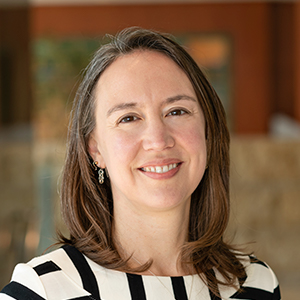The fifth annual Institute Research Conference will be held in Minneapolis on November 13, 2025. The keynote speaker is David Card, the 2021 winner of the Nobel prize in economics for his pioneering work using natural experiments to identify and measure causal effects in labor markets.
The goal of the Institute Research Conference is to showcase research related to the Institute’s main mission areas. While this could be accomplished without gathering in person, “we have a second goal in mind,” Institute Director Abigail Wozniak said in her opening remarks at last year’s event. “We want to accelerate the knowledge-building around how to foster opportunity and inclusive growth. To do that, we need to build more connections, and faster, across scholars who produce and use work under the big tent of those topics.”
Last year’s conference successfully served both goals. The in-person gathering fostered meaningful connections among the 100-plus Fed and academic researchers, current and past visiting scholars, and emerging scholars in attendance. The presentations looked deeply at a range of topics that have implications for economic opportunity and growth in local communities.
For instance, Atlanta Fed economist Veronika Penciakova’s presentation drew on the observation that levels of entrepreneurial activity vary across the country. To better understand potential sources of this variation, she and her co-authors distinguish between two stages of business formation: the “idea” phase and the “transition to business” phase. Their analysis identifies a number of local characteristics that are associated with each phase. For instance, the share of the local population that is Black or that is foreign-born is associated with more ideas but fewer transitions per capita, pointing to potential frictions in the transition process.
Another paper, presented by Atlanta Fed economist David Wiczer and co-authored by Institute economist Amanda Michaud, looks at geographic differences in the take-up of Social Security Disability Insurance (SSDI), which makes up about 10 percent of the Social Security budget. The analysis shows that places where people apply for SSDI and are awarded benefits at high rates are associated with low average income, poor health outcomes, and a low cost of living.
The three other papers presented consider the variation in the quality and accessibility of medical services, bonus pay structures and their impact on the business cycle, and retirement savings incentives (discussed in “Saving for retirement in America”).
In his keynote address, Atlanta Fed President Raphael Bostic spoke about another source of economic opportunity in communities: sustainable, maximum employment. The Fed has a dual mandate to promote price stability and maximum employment. “A household’s economic mobility and resilience begins with a job,” Bostic said. “And it continues and strengthens when a householder keeps a job.” One way to achieve that, Bostic said, is by investing in human capital, so that not only can everyone who wants a job find a job, but they can find one that “allows them to use their talents and training to the fullest.”
This article is featured in the Spring 2025 issue of For All, the magazine of the Opportunity & Inclusive Growth Institute
Lisa Camner McKay is a senior writer with the Opportunity & Inclusive Growth Institute at the Minneapolis Fed. In this role, she creates content for diverse audiences in support of the Institute’s policy and research work.





